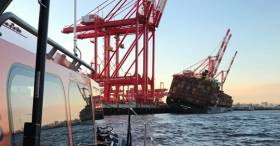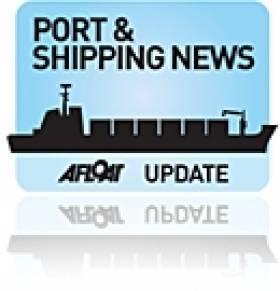Displaying items by tag: Containership
Crew from Lifeboat Capture Gut-Wrenching Footage As Containership tips Over at Liverpool2
Dramatic footage shows the moment lifeboat crews arrived to the scene where a container ship was tipping over reports Liverpool Echo.
The emergency services were called to assist at Liverpool2 in the early hours of Friday morning after the MSC Matilde began to tip over as it was docking.
Pictures taken on the docks showed the ship from Panama, which was reportedly carrying millions of pounds worth of goods, dangerously listing to the right but now, video taken on the water shows just how bad the situation was.
A spokesperson for the RLNI confirmed that Hoylake 's volunteer crew were paged in the early hours to offer support to the vessel alongside Crosby Coastguard.
A spokesperson for the Maritime and Coastguard Agency said: "HM Coastguard was contacted by Peel Ports VTS at around 2.25am today (24 May) to report that a container vessel was listing just outside Gladstone Dock on the River Mersey."
For much more including photos and footage click this link to the Liverpool docks story.
#ShipsRudder- A containership Arslan II (1991/3,125grt) that is understood to have got into difficulties involving her rudder off Arklow Bank in January, and has since remained in a Dublin Port for almost two months, is scheduled to depart today, writes Jehan Ashmore.
As previously reported on Afloat.ie, following the incident off Arklow Bank, the German-owned vessel was initially assisted by a single tug. When the tow had reached Dublin Bay a Dublin Port Co tug joined in to assist operations of the 260TEU container capacity vessel into port.
In February, the Arsalan II was moved into the No.2 dry-dock facility of Dublin Graving Docks Ltd.
A report of the incident off Arklow Bank is currently undergoing an investigation by the (MCIB) Marine Casualty Investigation Board. In recent days the 86m long vessel vacated the dry-dock to a nearby berth within Alexandra Basin from where she is to set sail.

























































